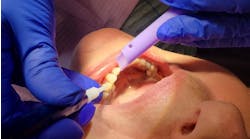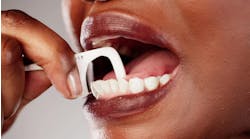Career exploration and skills assessment for dental hygienists
What’s the right career path for you? As most dental hygienists are performing clinical dental hygiene in a dental office, I wonder if you know what other career options suitable to you. Not everyone is meant to be a researcher or an educator. Here is a website, though not directly related to dental hygiene, that will give you a chance to determine your personal life skills that make you suitable for a variety of jobs. (1) There is a free self-guided skills assessment quiz. I took the quiz, and my results were as follows: Visionary, 20%; Educator, 20%; Superconnector, 20%; Mentor, 10%; Warrior, 10%; Builder, 10%; Researcher, 5%; Optimizer, 5%. Try yourself!
READ MORE | 'Tale of Two Hygienists' podcasts
According to the website, a “visionary” is creative, thinks out the box, sees things others cannot see, solves problems, identifies solutions, and motivates and inspires others. A visionary contemplates the “big picture” and hypothesizes about ideas to motivate others to action. Perhaps you have an idea on how to deliver oral care to those in a long-term care facility. You can motivate the nurses and other caregivers to action.
An “optimizer” can improve anything, save time and money, and is very efficient. A person with these skills assesses, analyzes, and charts improvements that directly save or make money. You can assess a business or project and immediately see methods to save or make money. Whether in a dental office or a long-term care facility, any business needs to make money to stay operational.
A “builder” gets things done on time and on budget, is a multitasker, and those around you have confidence in you that a project started will be completed. You execute a plan, manage all aspects of the plan, while keeping it on time and under budget. Do you see where these skills make you valuable in industry, public health, or education?
An “educator” is a good communicator, shares ideas, and keeps people focused and productive. Educators bridge gaps in knowledge and make sure those involved in a project are clear on their roles and goals. As dental hygienists we educate our patients daily. These skills can be transferred to educating the public, the medical profession, or future dental hygienists.
READ MORE | Your salary: How much is enough? Part 2: What formulas you need to know when asking for a raise
A “researcher” is a fact expert, one who finds information, compiles it, and shares it. They collect data and resources, and compile data and information to assist in better designs and decisions. They are detailed, structured, and organized. Perhaps running a public health program is a fit for a person with these skills.
A “superconnector”has a natural gift for making alliances, is naturally interested in learning about people, and has a knack for making others feel heard, powerful, and empowered. This type of person has comprehensive networks and build relationships with all types of professionals to improve communication and business. Maybe these skills can be transferred into a leadership position in your local or state dental hygienist association, your community, or your dental office.
A “warrior”is a powerhouse, goes the extra mile, and is passionate and committed to their goals. They do not shy away from adversity or challenges, and are not fearful of taking on failing projects, staying late to complete tasks. They are a source of influence or inspiration, and push us to a higher standard. They are strong, loyal, and passionate. I see this trait in most dental hygienists, especially in those in leadership positions. If this is a trait in which you excel, perhaps you should consider running for public office!
And last, but not least, is the “mentor.” This person knows the difference between coaching as opposed to educating. They develop skills in others and empower them. They are willing to share knowledge, have patience, and are able to tailor their influence to individuals for their professional development. They guide performance and assist others to develop their own skills.
READ MORE | Do you want to evolve your dental hygiene career?
The website mentioned helps to steer you through questions to determine where your strengths link to your motivation. It provides an analysis of your strengths and how they contribute to the success of an office, organization or other entity. It is not the ultimate goal, but the beginning of a process where you best learn your personal strengths and weaknesses. And remember, failure is success if we learn from it. It is a part of life, and a part of success. You may not choose your ultimate career path the first time around . . . or the second . . . or the third. But keep trying!
At our RDH Under One Roof Special Session: Evolve your Dental Hygiene Career in July, we will have information from a coach, someone else to guide us on developing a portfolio, individuals providing insight into working in the corporate arena, and others. Join us!







